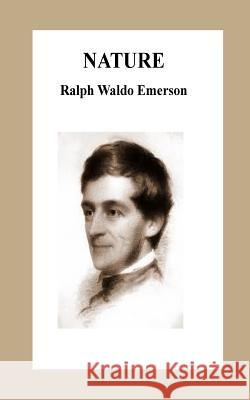Nature » książka
Nature
ISBN-13: 9781536870879 / Angielski / Miękka / 2016 / 76 str.
Nature
ISBN-13: 9781536870879 / Angielski / Miękka / 2016 / 76 str.
(netto: 41,93 VAT: 5%)
Najniższa cena z 30 dni: 43,29
ok. 16-18 dni roboczych.
Darmowa dostawa!
In "Nature," Emerson lays out and attempts to solve an abstract problem: that humans do not fully accept nature's beauty. He writes that people are distracted by the demands of the world, whereas nature gives but humans fail to reciprocate. The essay consists of eight sections: Nature, Commodity, Beauty, Language, Discipline, Idealism, Spirit and Prospects. Each section takes a different perspective on the relationship between humans and nature. In the essay Emerson explains that to experience the "wholeness" with nature for which we are naturally suited, we must be separate from the flaws and distractions imposed on us by society. Emerson believed that solitude is the single mechanism through which we can be fully engaged in the world of nature, writing "To go into solitude, a man needs to retire as much from his chamber as from society. I am not solitary whilst I read and write, though nobody is with me. But if a man would be alone, let him look at the stars." When a person experiences true solitude, in nature, it "take s] him away." Society, he says, destroys wholeness, whereas "Nature, in its ministry to man, is not only the material, but is also the process and the result. All the parts incessantly work into each other's hands for the profit of man. The wind sows the seed; the sun evaporates the sea; the wind blows the vapor to the field; the ice, on the other side of the planet, condenses rain on this; the rain feeds the plant; the plant feeds the animal; and thus the endless circulations of the divine charity nourish man." Emerson defines a spiritual relationship. In nature a person finds its spirit and accepts it as the Universal Being. He writes: "Nature is not fixed but fluid; to a pure spirit, nature is everything."
Zawartość książki może nie spełniać oczekiwań – reklamacje nie obejmują treści, która mogła nie być redakcyjnie ani merytorycznie opracowana.











